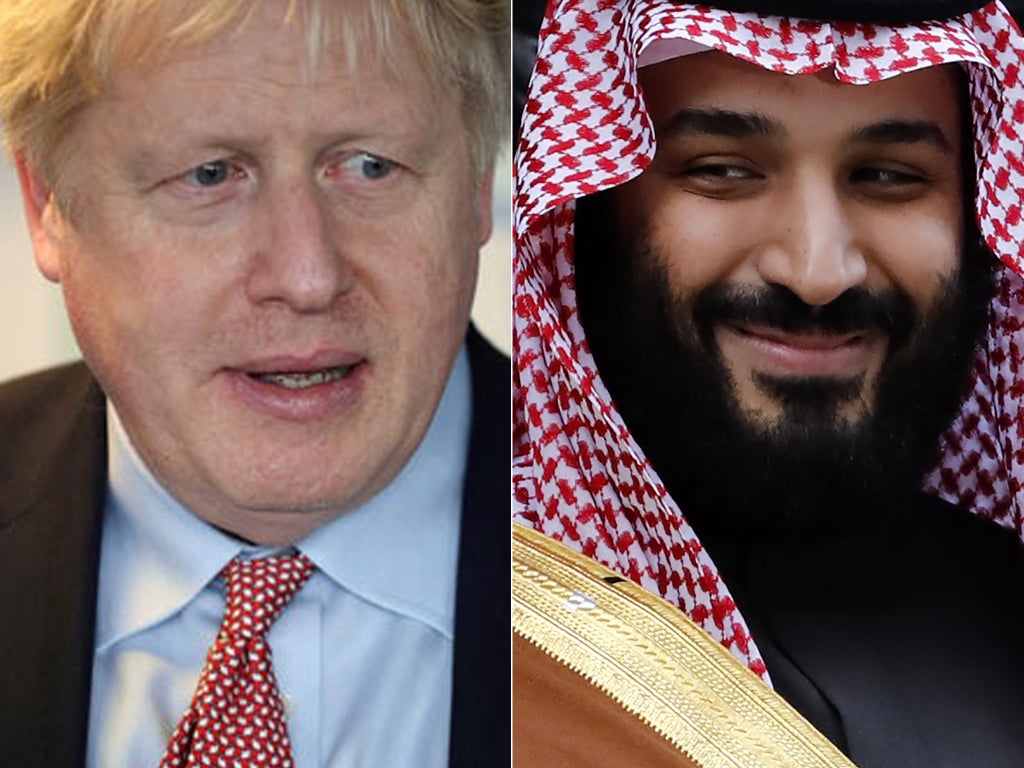
Boris Johnson is to travel to the Middle East overnight for talks to urge Saudi Arabia and the United Arab Emirates to step up oil production in response to the Ukraine war, Downing Street has confirmed.
The prime minister will meet Saudi crown prince Mohammed bin Salman just days after the desert kingdom executed 81 people in the largest mass imposition of the death penalty for many years.
Downing Street said the PM will raise human rights and the UK’s opposition to capital punishment with the kingdom’s de facto ruler on Wednesday, but declined to say whether Mr Johnson will raise the murder of journalist Jamal Khashoggi, in which “MBS” is widely alleged to have been implicated.
Confronted by a Sky News interviewer over whether he was seeking support from “unpleasant” countries like Saudi and Iran in order to counter the threat from Vladimir Putin, Mr Johnson insisted it was necessary to “build the widest possible coalition”.
He compared Putin to a drug-pusher feeding on the “addiction” of Western nations on Russian oil and gas and said the world needed to “to avoid being blackmailed by Putin in the way that so many Western countries sadly have been”.
“We've got to get ourselves off Russian hydrocarbons,” said Mr Johnson. “They're a massive part of the global market for hydrocarbons. They help to drive the price.
“We need to talk to other producers around the world about how we can move away from that dependence. Vladimir Putin over the last years has been like a pusher, feeding an addiction in Western countries to use hydrocarbons, to use oil and gas. We need to get ourselves off that addiction.”
Asked about his willingness to talk to MBS despite the Khashoggi murder, Mr Johnson said: “We want to build the widest possible coalition to ensure that we focus on what is happening in Ukraine and the effect that that is having on the price of oil and gas.
“There’s no question at all that the spike in oil and gas ... is being felt by British consumers, by everybody who has a central heating system. Everybody in this country is seeing the effects of that spike in prices.
“We have to deal with that in any way that we can.”
But anti-arms trade campaigners said that the visit would “embolden” Saudi Arabia in its use of military violence in Yemen and abuse of human rights at home.
The Campaign Against Arms Trade said Mr Johnson appeared to be rewarding Riyadh for last week’s executions by making it the UK’s “fossil fuel supplier of choice”, as well as its largest arms customer, with £22m of sales to the coalition fighting in Yemen since the start of the war.
CAAT’s Kate Fallon said: “This trip signals that the prime minister plans not only to replicate but to entrench another trading relationship with a murderous regime with no regard for the right to life of their own citizens, yet alone those of another country such as Yemen.
“When we ask ourselves how did Russia feel so emboldened as to invade Ukraine indiscriminately targeting civilians throughout the first three weeks of this devastating war, the answer lies in decades of silence, excuses and short-sighted self-interest illustrated perfectly by the unconscionable actions of the prime minister.”
The one-day visit comes as Mr Johnson prepares an energy supply strategy designed to help the UK wean itself off Russian gas and oil, which look set to involve new drilling in the North Sea as well as an accelerated switch to nuclear and renewables.
It follows reports that MBS refused to take a phone call about the energy crisis from US president Joe Biden, who has previously said that Riyadh should “pay the price” for Khashoggi’s death.
But Downing Street insisted that Mr Johnson, while visiting as the leader of a G7 country and permanent member of the UN Security Council, was not seeking to represent the views of the West in talks with Mohammed.
Mr Johnson’s spokesperson said the PM recognised that the massive spike in energy prices caused by sanctions on Russia cannot be reversed overnight by oil-rich Gulf states turning on the taps.
“There are no quick fixes,” said the spokesperson. “This is something that is a global challenge and needs to have global solutions. It won’t be fixed in one visit.”







